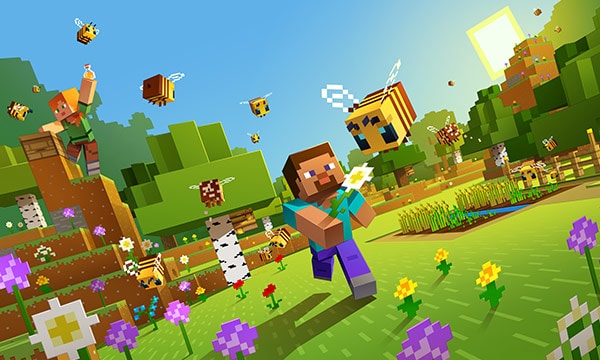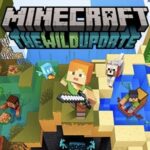By Gary Symons
TLL Editor in Chief
Minecraft, one of the world’s most popular games and metaverse platforms, has banned the use of non-fungible tokens (NFTs).
The move is part of a much wider backlash against NFTs in the gaming community, but the ban from Minecraft is particularly damaging given the platform’s importance in the development of the metaverse.
The policy was released in late July, and effectively bans anyone who wants to integrate into the Minecraft platform. “To ensure that Minecraft players have a safe and inclusive experience, blockchain technologies are not permitted to be integrated inside our client and server applications, nor may Minecraft in-game content such as worlds, skins, persona items, or other mods, be utilized by blockchain technology to create a scarce digital asset,” Mojang says in a terms of service update.
The company says it made the move “after a number of recently launched NFT implementations that are associated with Minecraft world files and skin packs. Other examples of how NFTs and blockchain could be utilized with Minecraft include creating Minecraft collectible NFTs, allowing players to earn NFTs through activities performed on a server, or earning Minecraft NFT rewards for activities outside the game.”

Minecraft, similar to Roblox, is a digital platform that allows users to create their own mini-games, stores, and other experiences. As an early example of a metaverse-style world, the platform quickly attracted Web3 developers, including those who wanted to launch various NFT products, like character skins, virtual outfits, and so on.
Some of those implementations included so-called Play To Earn activities (P2E) in which players would try to earn NFTs through their play, which could then be resold.
Unfortunately, some implementations of P2E programs backfired badly on players on a variety of platforms. The worst example was on the blockchain game Axie Infinity, which was created to allow players to earn money as they won NFTs through gameplay.
Unfortunately, the players ended up losing most of the value of their NFTs as cryptocurrency prices tumbled in recent months, and then disaster struck when hackers emptied out the game’s wallet, stealing roughly $520 million.
But even before that, many gamers have reacted badly to the idea of NFTs, seeing them as environmentally unsound, and also due to the potential of fraud or abuse.
So this past week, Minecraft has added its name to the growing list of video game companies that have disavowed the use of NFTs, leaving the future of the technology in doubt.
In doing so, Mojang also issued a stunning takedown of the NFT fad in general, saying it opened players up to the possibility of fraud and abuse. It’s worth taking a look at three paragraphs in particular from Minecraft’s terms of service update, which says, “uses of NFTs and other blockchain technologies creates digital ownership based on scarcity and exclusion, which does not align with Minecraft values of creative inclusion and playing together.
“NFTs are not inclusive of all our community and create a scenario of the haves and the have-nots. The speculative pricing and investment mentality around NFTs takes the focus away from playing the game and encourages profiteering, which we think is inconsistent with the long-term joy and success of our players.
“We are also concerned that some third-party NFTs may not be reliable and may end up costing players who buy them. Some third-party NFT implementations are also entirely dependent on blockchain technology and may require an asset manager who might disappear without notice. There have also been instances where NFTs were sold at artificially or fraudulently inflated prices.
As such, to ensure that Minecraft players have a safe and inclusive experience, blockchain technologies are not permitted to be integrated inside our Minecraft client and server applications nor may they be utilized to create NFTs associated with any in-game content, including worlds, skins, persona items, or other mods. We will also be paying close attention to how blockchain technology evolves over time to ensure that the above principles are withheld and determine whether it will allow for more secure experiences or other practical and inclusive applications in gaming. However, we have no plans of implementing blockchain technology into Minecraft right now.”
Mojang is hardly the first video game company t ban NFTs, as gamers have made it clear they hate the idea of buying NFTs on top of the video games they already purchase. Earlier this month, Sony announced a loyalty program called Playstation Stars which will reward players with digital collectibles, but stressed these digital collectibles are not NFTs.
“It’s definitely not NFTs. Definitely not. You can’t trade them or sell them. It is not leveraging any blockchain technologies and definitely not NFTs,” said Grace Chen, Sony VP of network advertising, loyalty, and licensed merchandise.
